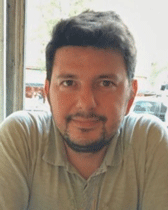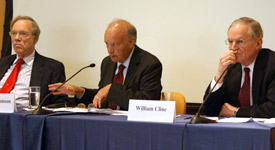
Onur Ozgode is a Postdoctoral Fellow at the Science in Human Culture Program and a sociologist whose work explores the emergence and governance of socio-economic and techno-political problems that exceed the limits of political (neo-)liberalism.
Onur approaches this question from a post-constructionist Foucaultian perspective that lies at the intersection of economic sociology and sociology of expertise. He is currently working on a book manuscript, entitled Fractals of Governance: Governing Systemic Risk at the Limits of Liberalism, 1922-2010. Fractals of Governance examines the emergence of “systemic risk” in finance as a governmental problem to explain the transformation of macroeconomic governance in the United States since the 1920s. Using genealogical method and actor-network theory analytics, the book shows that systemic risk is both a new and an old problem. It is old, because it points to the tendency of market economies to accumulate inter-sectoral imbalances that trigger systemic collapse. Its contemporary framing as a financial imbalance, however, is novel, because the rise of monetary government at the Federal Reserve in the 1970s mapped this old problem onto a new-object domain, the monetary economy. The book further argues that the systemic risk regulation regime established under the Dodd-Frank Act of 2010 marks a decisive mutation in the structure of macroeconomic governance, as this new regime redeploys systemic tools developed for managing systemic risk at the scale of inter-sectoral imbalance for managing systemic risk in finance, thereby rearticulating monetary government in a systemic mode. Onur’s next project will focus on the invention of structural adjustment and macro-prudential regulation at the World Bank and the International Monetary Fund respectively in response to the collapse of the Bretton Woods international monetary system.
Onur received his Ph.D. in Sociology from Columbia University in 2015 and has held research fellowships at Harvard Law School and Duke University in the last two years. He studied Operations Research and Economics at Columbia (B.S. 2005).
